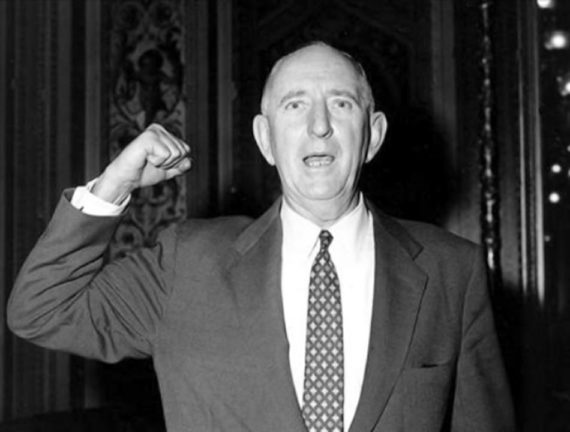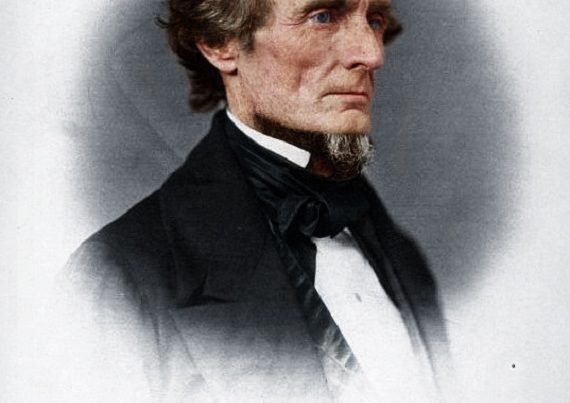There was a time both before and after the War when the South dominated the United States Congress. In the antebellum period, James Madison, John C. Calhoun, John Randolph of Roanoke, and Henry Clay placed their mark on congressional debates, and several other Southerners ranked among the best statesmen of the era. But most Americans, even those in the South, don’t realize that by the mid-twentieth century, Southerners controlled every major committee in the Senate and played a substantial role in the legislative proceedings of both houses of Congress. This process began during the Wilson administration and continued virtually unabated until the 1970s. The “Southern Bloc” mentored promising young Southern congressmen by grooming them for power. Southerners held the formal procedures of Congress in high regard and considered being a United States Senator a position of honor and respect.
Much of the legislation these men advocated contained an obvious Jeffersonian influence. From farm bills to anti-trust harpoons against big banks and big corporations, Southerners used the mechanisms the North created in the aftermath of the War to strike back at Yankee finance capitalists. Their robust populism was undergirded by a regional cultural and political tradition based on land, family, Christianity, and decentralization, of home rule and suspicion of Northern political economy and Yankee meddling.
Every issue could be viewed through this lens, even foreign policy, where Southerners often cautioned against rushing headlong into foreign wars. That was the Jeffersonian approach to the world.
No senator personified these traits better than Richard B. Russell of Georgia. He was the “senator’s senator,” and other than the president the most powerful man in Washington. For nearly four decades Russell dominated the Senate. To the left, Russell’s lasting legacy was his determined effort to block civil rights legislation, but this was only part–and perhaps a much smaller part than often portrayed–of his influence on the legislative record. In fact, Russell could not single-handedly block any civil rights legislation from reaching the Senate floor, nor did the “Southern Bloc” regularly have the sufficient votes to stymie any legislative effort, including civil rights. They needed Republican help. That is the dirty little secret today. Republicans, not Democrats, often held up civil rights legislation in committee. The “Southern Bloc” had a better record in proposing and crafting legislation and in using the procedural rules to slow things down, take apart executive overreach, or expose government abuse than outright obstruction.
Undoubtedly, if it wasn’t for the race issue, Americans would better appreciate Russell and his commitment to sound American government. Calls to rename the United States Senate building or the federal courthouse in Atlanta would be non-existent, but this is the world the Left created. No matter how committed or brilliant a statesman, the stain of “white supremacy” invalidates every good dead, but only if you are Southern. Northerners with the same views get a free pass. See St. Abraham.
Russell’s position on American foreign policy would be a refreshing departure from the modern establishment effort to bomb the world to submission. His efforts to keep Douglas MacArthur out of the spotlight in 1951 probably avoided the beginning of World War III, and as recently released tapes of phone conversations between Lyndon Johnson and Russell in 1964 show, Russell also warned Johnson about getting more involved in Vietnam. Southerners eventually became the leading voices for non-escalation in Southeast Asia.
Russell needs more scholarly attention, as do many of the members of the twentieth-century Southern congressional leadership. Placing race as the central focus of their political careers often distorts the Jeffersonian contributions these men made to American government and society. For some, like Theodore Bilbo of Mississippi, this was certainly the case, but for others who are as maligned–if not more so–than antebellum Southern statesmen, a better effort could be made to understand rather than condemn their role in shaping the American century. That would be the real “historical” approach to take.







